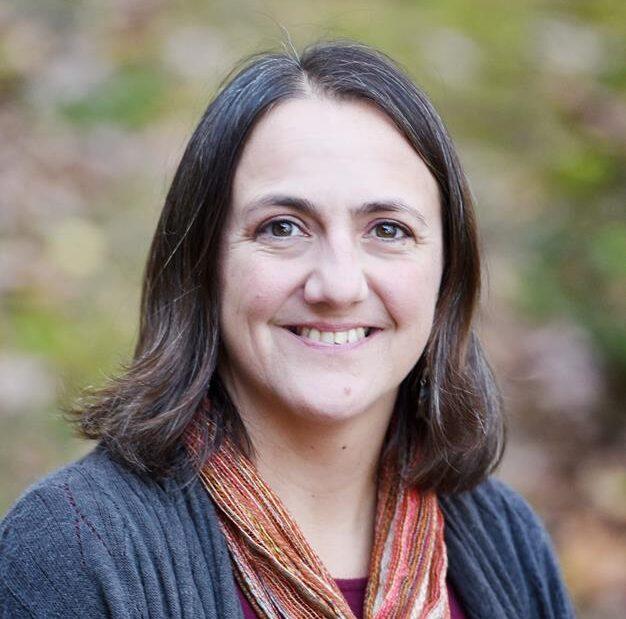Research Strongly Indicates Abortion Restrictions Harm People’s Health and Well-being
This product is the first in a series highlighting the far-reaching impacts of abortion restrictions on children, youth, and families.
Abortion is essential to reproductive autonomy—the power to decide and control one’s own pregnancies and childbearing—and is widely considered an essential component of health care. The Supreme Court’s decision in Dobbs v. Jackson Women’s Health Organization to overturn Roe v. Wade limits this autonomy by giving states the power to fully regulate abortion. As a result, where one lives impacts access to abortion more than it has in the past 50 years. As of this writing, abortion is now effectively banned in many states, with even more considering additional restrictions (see resources below for a link to up-to-date policies across states). In this blog, we review research on how restricted access to abortion harms the health and well-being of women and children.[1]
Limited access to abortion negatively impacts the health and well-being of those forced to carry a pregnancy to term.
The most rigorous research to date on this topic, the Turnaway study, compared outcomes for similar women of near-similar gestation who sought abortions, but some of whom were turned away. Women who were turned away—and carried the pregnancy to term—were more likely than those who obtained an abortion to face life-threatening complications such as pre-eclampsia or hemorrhage, and were more likely to report chronic headaches, joint pain, and gestational hypertension. They were more likely to stay in an abusive partnership and, five years later, were also more likely to be parenting alone. Additionally, women who were turned away were more likely to live in poverty; to have less money for food, housing, and transportation; to have lower credit scores; to have substantially higher debt; and to experience bankruptcy or eviction. Women who carried a baby to term after being denied an abortion were also less likely to bond with their children in early childhood.
Black and Hispanic people will be disproportionately negatively impacted by the Dobbs decision.
Within the United States, a history of systematic and discriminatory practices and policies—such as limited access to health care, experiences of racial and ethnic discrimination, higher levels of stress, more unstable or unpredictable employment, and worse living conditions—put people with low incomes, and those who are Black or Hispanic,[2] at particular risk of being forced to parent when they might have chosen otherwise. Systemic discrimination means that these groups have less access to contraception, are more likely to have unintended pregnancies, and are less likely to be able to travel out of state for an abortion. A recent study estimated that denying all abortions would increase overall maternal mortality in the United States by 21 percent, and by 33 percent for Black patients.
The negative impacts of limited abortion access also extend to children.
Researchers estimate that patchy, inequitable, or nonexistent access to abortion in a post-Dobbs world would mean as many as 100,000 more unintended pregnancies will be carried to term each year. Babies who are born as a result of unintended pregnancies are at higher risk of being born pre-term and/or at a low birth weight. Additionally, children from unintended pregnancies will be parented by people at a higher risk of stress and depression, which can be associated with challenges for children across the life course—for example, decreased economic and emotional security, an increased risk of maltreatment, and exposure to violence. Six in 10 people who get an abortion already have a child at the time of the abortion; the Turnaway study found that existing children also faced a greater risk of growing up in poverty and poorer child development when their mother was denied an abortion.
The research evidence is unambiguous: Pregnant individuals benefit when they can choose whether to carry a fetus to term. State restrictions on abortion are harmful to adults and children.
Related Content
- Offering Sexual and Reproductive Health Services to Adolescents in School Settings Can Create More Equitable Access
- Promising Practices for Expanding Students’ Awareness and Use of School-based Family Planning Services
- Title X Provider Strategies to Increase Client Access to Family Planning Services
This blog is the first in a series highlighting the far-reaching impacts of abortion restrictions on children, youth, and families.
Useful resources
- Learn more about your reproductive rights in the United States
- Power to Decide’s state-by-state guide on abortion access and regulations
- KFF Abortion Access Dashboard
- Guttmacher Institute’s State Policies on Abortion
Footnote
[1] Although research on abortion among transgender and non-binary people who do not identify as women or girls is extremely limited, abortion restrictions will impact the well-being of these groups as well.
[2] These issues are likely relevant for other racial and ethnic groups such as American Indians/Alaska Natives and Pacific Islanders. Unfortunately, abortion data for these groups are hard to obtain.
© Copyright 2025 ChildTrendsPrivacy Statement
Newsletter SignupLinkedInYouTube


